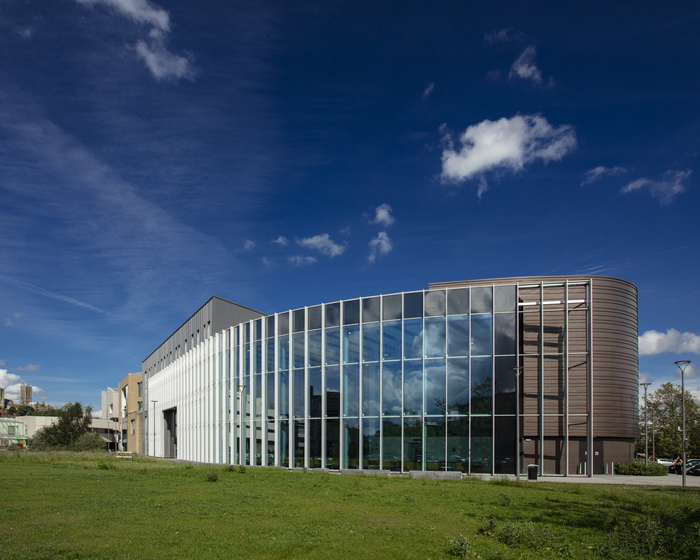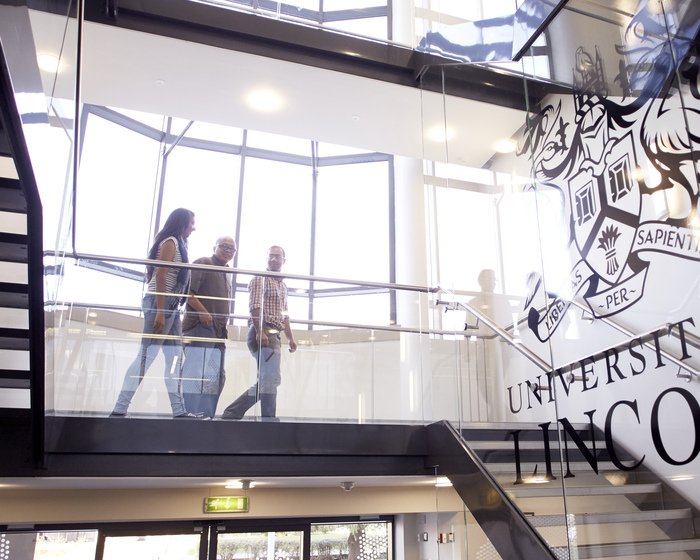/prod01/university-of-lincoln-cdn-pxl/media/responsive2017/images/course/coursebanner/UofL,Jan23,289,by,Electric,Egg,eggr3692.jpg )
Science Foundation Year
Computer Science Programmes
Study Computer Science
Through our inspirational teaching, world-leading research, and specialist facilities, we aim to prepare our graduates with the necessary skills and mindset to work at the frontier of our discipline. We aim to provide students with the opportunity to develop the experience, skills, and knowledge to design and develop a variety of software and hardware computing solutions for real-world problems. Particular attention is paid to cutting-edge topics, such as artificial intelligence and machine learning, in addition to core computer science disciplines.
Foundation Year Programmes (2024 Entry)
| Course Title | UCAS Code | Validation Status | Entry Requirements (A level) | Entry Requirements (BTEC) | Entry Requirements (T Level) | Additional Requirements (GCSE) |
| Computer Science with Science Foundation Year BSc/MComp | G408/G407 | Validated |
72 UCAS Tariff points to include 32 points from a STEM subject |
MMP (Merit, Merit, Pass to include 32 points from a STEM subject) | Pass (D or E on the Core) to include 32 points from a STEM subject | 3 GCSEs at grade 4(C) to include English and Maths |
| Computer Science with Artificial Intelligence with Science Foundation Year BSc | G413 | Validated | 72 UCAS Tariff points to include 32 points from a STEM subject | MMP (Merit, Merit, Pass to include 32 points from a STEM subject) | Pass (D or E on the Core) to include 32 points from a STEM subject | 3 GCSEs at grade 4(C) to include English and Maths |
| Games Computing with Science Foundation Year BSc/MComp | G409/G611 | Validated | 72 UCAS Tariff points to include 32 points from a STEM subject | MMP (Merit, Merit, Pass to include 32 points from a STEM subject) | Pass (D or E on the Core) to include 32 points from a STEM subject | 3 GCSEs at grade 4(C) to include English and Maths |
| Games Computing with Virtual and Augmented Reality with Science Foundation Year BSc | G410 | Validated | 72 UCAS Tariff points to include 32 points from a STEM subject | MMP (Merit, Merit, Pass to include 32 points from a STEM subject) | Pass (D or E on the Core) to include 32 points from a STEM subject | 3 GCSEs at grade 4(C) to include English and Maths |
| Robotics with Science Foundation Year BSc | H671 | Validated | 72 UCAS Tariff points to include 32 points from a STEM subject | MMP (Merit, Merit, Pass to include 32 points from a STEM subject) | Pass (D or E on the Core) to include 32 points from a STEM subject | 3 GCSEs at grade 4(C) to include English and Maths |
Please note that English language requirements for International students can be found on the full degree course pages for each programme.
Some programmes may also be available for part-time study.
How You Study
Students on all foundation programmes study a combination of core and subject-specific modules during the first year as part of an integrated degree programme. The combination of modules studied is tailored to the needs of the full degree programme that students wish to progress onto after successful completion of the foundation year.
Students study a core module at the start of the programme, which aims to introduce key study skills required for further study. Students study three further modules, which introduce fundamental aspects of specific areas of science and mathematics relevant to the chosen foundation year programme. Students also study an integrative module, which is aligned to the full degree programme which students' wish to progress onto upon successful completion of the Science Foundation Year.
Following successful completion of the Science Foundation Year, students will then progress onto the first undergraduate year of their chosen degree programme. This means students will study for a total of four years for a standard degree, or five years if they take an integrated Master’s degree. Students’ final awards upon graduating will reflect the full course title, for example “BSc (Hons) Computer Science with Science Foundation Year”. Course specific information on degree programmes within the School of Computer Science can be found on our course pages.
Modules (Computer Science and Games Computing)
Computer Science, Computer Science with Artificial Intelligence, Games Computing, and Games Computing with Virtual and Augmented Reality students will study the modules:
- Study Skills
- Mathematical Methods
- Applied Mathematics
- Fundamentals of Computer Science
Students also complete an integrative module:
- Foundation Year Computer Science
Modules (Robotics)
Robotics students will study the modules:
- Study Skills
- Mathematical Methods
- Applied Mathematics
- Fundamentals of Computer Science
Students also complete an integrative module:
- Foundation Year Engineering
Following successful completion of the foundation year, students will then progress onto their chosen full degree programme. Full module details can be found below:
Compulsory Modules
Study Skills
This core module is compulsory for all Science Foundation Year students. During the communication elements of the module, you will have the opportunity to develop your learning, group work and presentation skills, together with both written and verbal communication skills and ICT skills. The module will be assessed via submission of three pieces of coursework.
- A reflective commentary
- A group presentation
- A scientific essay
Mathematical Methods
The aim of this module is to recap and consolidate your knowledge in key areas of A-Level Mathematics, whilst also developing key processing and problem solving skills.
Applied Mathematics
The module aims to develop the relevant problem solving and mathematical skills to provide a solid mathematical base to support future studies. The module will be assessed via regular submission of coursework questions and an end of year synoptic assessment.
Fundamentals of Computer Science
This module is compulsory for students progressing into computing degrees and runs over both semesters. It develops students’ understanding of elementary computer science, focusing on building their capacity to program machines effectively. There will be a focus on representing data in computers and processing that data, developing key processing and problem-solving skills useful in computer science. Teaching is both through theoretical sessions and practical computer lab-based sessions in which students gain hands-on experience. The module is assessed partly through coursework and partly by examination.
Foundation Year Computer Science (Computer Science and Games Computing Students)
This module is compulsory for students progressing into computing degrees and runs in the second semester. It builds a deeper understanding of computers, the way they work, and their role in the modern world. By building links with the Year 1 curriculum, students are prepared for the transition to the next level of their degree programme. Teaching is through seminars and practical sessions, with a mixture of theory and work in the computer laboratory. The module is assessed by a coursework portfolio, in which students solve problems and respond to scenarios set by the teaching staff.
Foundation Year Engineering (Robotics Students)
This module aims to enable students to gain an understanding of their chosen degree and career path, as well as supporting them in their personal development as reflective learners and engineers. Shaped around a series of practical activities, the aim is for students to explore current and future developments in engineering and the engineering industry. Practical activities are aligned to various engineering disciplines, such as automation, electrical and electronics, control, and mechanical engineering, in order to provide an insight into the diverse range of opportunities within the profession and the aim is to enable students to make an informed choice on study pathways.
How You Are Assessed
The way students will be assessed will vary for each module. It could include coursework, such as a lab report or essay, an end of year synoptic assessment, portfolio development, group work, or presentations to name some examples.



